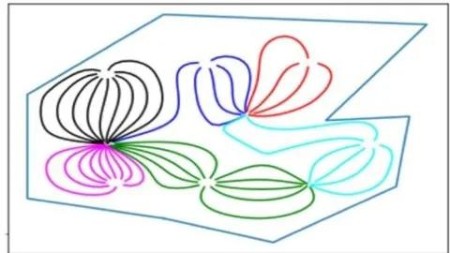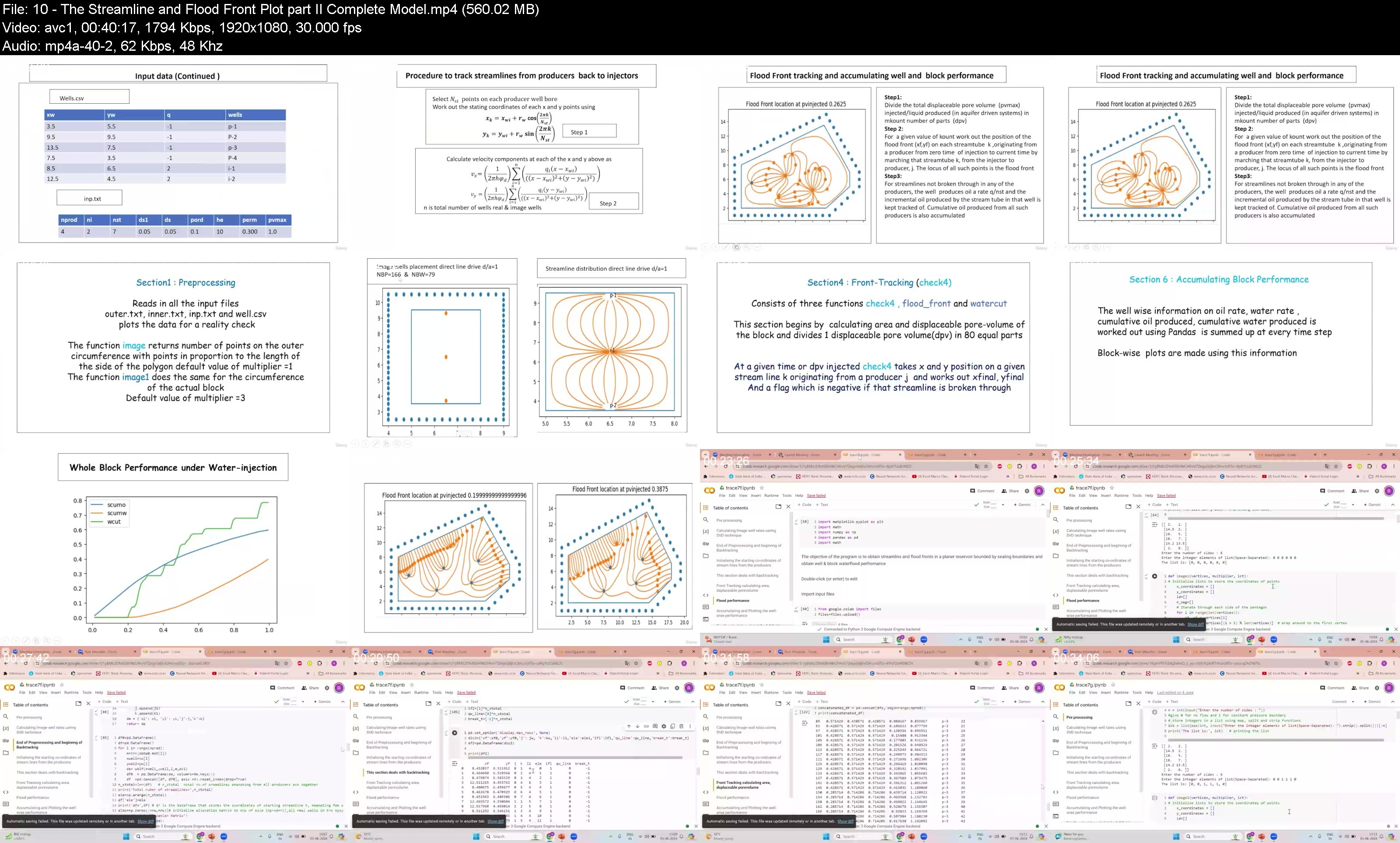Most Commented
Fundamentals Of Streamline Model For Waterflooding




Description material

Fundamentals Of Streamline Model For Waterflooding
Published 10/2024
MP4 | Video: h264, 1920x1080 | Audio: AAC, 44.1 KHz
Language: English | Size: 4.46 GB | Duration: 8h 1m
A practical guide to Streamline Modelling Using Python
What you'll learn
Will learn how to visualize movement of injected water in a plane Reservoir
Using a python program learn to predict waterflood performance
Will get a tool to understand the waterflood being monitored
Learn how to use a python program to assess the use of polymer-flooding for Enhanced oil Recovery in a moderately heavy oil reservoir
Requirements
Fundamental knowledge of Reseroir Engineering and familiarity with python programing
Description
This course is about how to use python to model Waterflooding. Waterflooding is the most popular secondary recovery technique widely practiced throughout E&P industry. However, there are no simple tools to model waterflood to answer some of the basic questions like when to expect breakthrough of water, how the flood front looks like, are there any opportunities to improve ongoing waterflood and how heterogeneities impact waterflood performance.Although Commercial Numerical Simulation approaches are available, they require specialised training which is time consuming. With the popularity of python, it is possible to understand the intricacies of a waterflood process in a more transparent manner.The course is meant for Reservoir Engineers, Geoscientists working in Sub Surface team and all those concerned with reservoir management of waterflood processes in an oil field. Working knowledge of python/running python programs in a GoogleColab environment is assumed.The participants will get an in-depth view of how injected water moves from water injection wells to oil production wells. They will explore the python programs to study various kinds of sensitivities of waterflood performance to placement of injectors and producers and how the heterogeneities in permeability and effective thickness will impact waterflood performance. It will also provide an insight in on how the convective and diffusive displacement takes place along streamlines.
Overview
Section 1: Introduction
Lecture 1 Introduction
Lecture 2 Section-wise details
Section 2: Linear Displacement Models
Lecture 3 Linear Displacement Processes
Lecture 4 Leaky Piston Displacement
Lecture 5 Python programs for linear leaky piston displacement processes
Section 3: 2D Streamtube models for homogeneous reservoirs using Method Of Images
Lecture 6 Basic Principles Of Streamtube Models
Lecture 7 Applications of Steady State Line Source Solution using Excel & VB
Lecture 8 Basic Principles Of Streamline Modelling using Method Of Images
Lecture 9 The streamline & Flood Front Plot Part-I
Lecture 10 The Streamline and Flood Front Plot part II (Complete Model)
Lecture 11 Applications Of Trace7f
Section 4: Streamline Modelling Using A Finite Difference Approach
Lecture 12 Streamline Modelling using A Finite Difference Approach
Lecture 13 2D Streamline model using Finite Difference technique using new20b.ipynb
Lecture 14 Plotting Flood Front & Pattern Flood Performance
Lecture 15 Waterflood Surveillance Using Streamline Model
Section 5: Saturation Modelling Along A Streamline
Lecture 16 Saturation Modelling along a single streamline
Lecture 17 Saturation Modelling in 2D using impe3.ipynb
Section 6: Streamline Model For Polymer Flooding
Lecture 18 Polymer Flooding Model :1d using poly1d.ipynb
Lecture 19 A 2D Polymer flood Streamtube Model
Reservoir and Petroleum Engineers, Subsurface Geoscientists involved in oil field Reservoir Management and Graduate Postgraduate and Doctoral Students involved in Subsurface Activities of Waterflooding and Chemical Flooding in Oil Fields ,

Join to our telegram Group
Information
Users of Guests are not allowed to comment this publication.
Users of Guests are not allowed to comment this publication.
Choose Site Language
Recommended news
Commented



![eM Client Pro 9.2.1735 Multilingual [Updated]](https://pikky.net/medium/wXgc.png)






![Movavi Video Editor 24.0.2.0 Multilingual [ Updated]](https://pikky.net/medium/qhrc.png)

